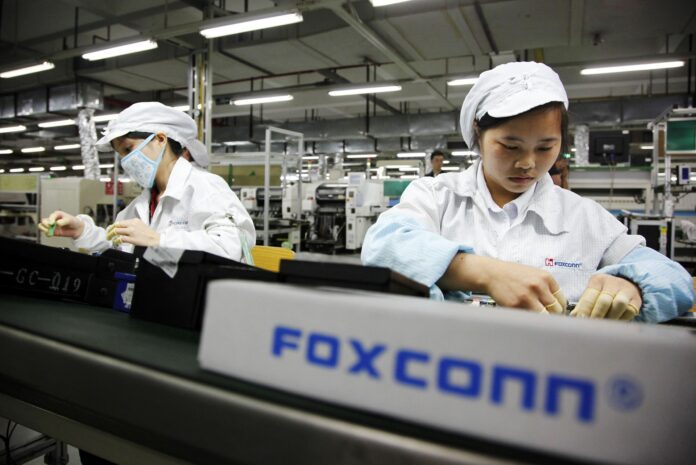The critical phase is behind us. This is said by Young Liu, the president of Foxconn, which is the largest iPhone assembler in the world. Having come out of the tunnel of Covid restrictions, until a few weeks ago as stringent as in the first phase of the pandemic in China due to the latest wave of infections, Apple’s number one production partner speaks through its number one publicly reassuring Apple, the markets and the investors.
In a finally stable context, we proceeded to damage counts. Which would be limited: the production performance in recent weeks has been “better than we had estimated”. Phrases that could potentially be labeled as slogans, but which are supported by numbers: due to the lockdown in April, according to information gathered by Nikkei Asia, the Foxconn revenue they contracted compared to the previous month by 4% compared to -35% and -40% for Pegatron, another iPhone assembler, and Quanta, which mainly deals with MacBooks.
Foxconn has a company structure which has allowed it to suffer negligible repercussions compared to similar realities, and which should shield the production from sudden future events. Liu explained that the implants can work at their usual rhythms even in periods of maximum restrictions thanks to “campus” internal, i.e. dormitories, which limit movements in and out of factories and therefore guarantee the safety of employees and their productivity, neutralizing the negative effects of the pandemic, for example.
Previously – Liu told investors – we had expected to maintain a production level similar to last year, due to inflation, war in Ukraine and other sources of uncertainty, but now the forecasts are on the up: 2022 will be better than how much we had estimated.
So good news for Apple and its iPhones 14. Production shouldn’t have started yet (August), but prospects are good. However, the well-known analyst Ming-Chi Kuo expressed himself a few days ago on the subject, who had shifted attention from production capacity to the market, that is, to willingness or ability of customers to purchase the next model.
No worries about the news, since a change of pace compared to previous generations is expected, especially on the Pros, rather the economic uncertainties that derive from inflation that has never been so high for many years and the “practical” repercussions on the wallet, which could induce a large part of potential customers to postpone the purchase.














